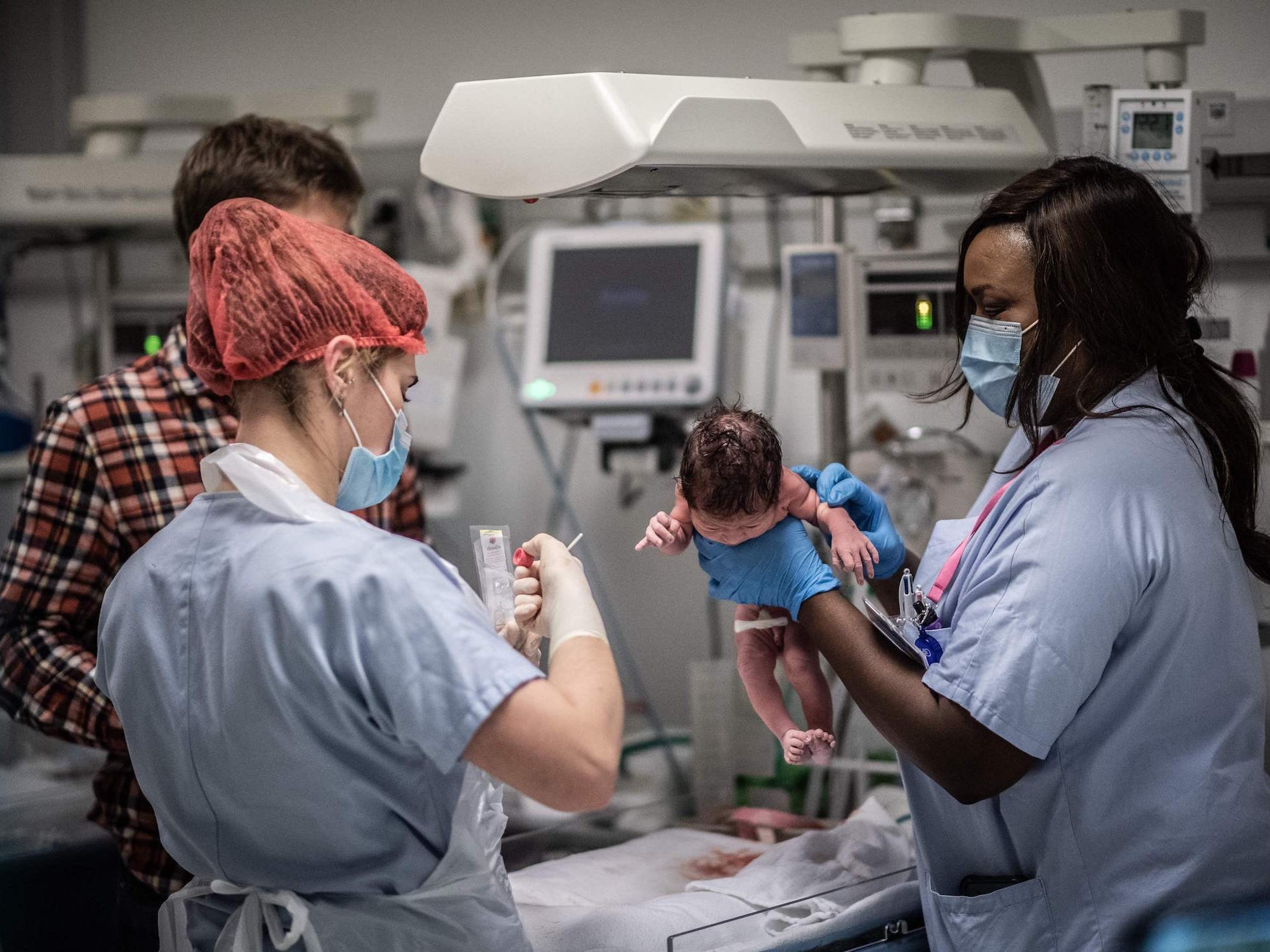
Martin Bureau/AFP via Getty Images
- A baby in Washington, DC with COVID-19 was found to have 51,418 times more viral particles than typical patients.
- Researchers later found the infection was a new variant of COVID-19, seen in at least eight other cases.
- It’s not clear whether this variant is more dangerous to children, and more research is needed.
- Visit the Business section of Insider for more stories.
A new coronavirus variant has emerged.
A very sick newborn, treated at Children’s National Hospital in Washington, D.C., was found to have not only a new variant of the novel coronavirus, but a viral load 51,418 times higher than other young patients, according to the Washington Post.
The new variant was identified recently when the researchers sequenced the genome of the virus from the baby, who treated in September and recovered, reported the Post’s Ariana Eunjung Cha.
It’s not clear how common or how risky this new variant might be. The database found eight other cases of this variant in the US mid-Atlantic region, according to a pre-print study, which has not yet been peer-reviewed, on coronavirus variations in children.
The variant, researchers said, has a different type of spike protein structure that may make it more infectious.
It's not clear whether this new variant explains the huge number of viral particles detected in the infant's nose.
"It could be a complete coincidence," Roberta DeBiasi, chief of infectious disease for the Children's National Hospital, told the Post. "But the association is pretty strong. If you see a patient who has exponentially more virus and it's a completely different variant, it is probably related."
Many questions remain about how the coronavirus affects children
Children are less likely to have severe cases of COVID-19, according to national data. Very young children may be less likely to infect other people when they get sick, although the CDC still suggests that everyone could potentially spread the disease.
But researchers still don't fully understand all the implications of coronavirus for children and babies.
In the past five months, the number of pediatric coronavirus cases has gone up "dramatically," according to the American Academy of Pediatrics and the Children's Hospital Association.
Severe cases of COVID-19 in children are rare, but do exist, and have been linked to serious and long-term side effects, including brain damage.
And we do know that some children are more vulnerable than others - the death rate of children of color is far higher than that of their white peers. As of February 11, 241 children have died of COVID-19 and the vast majority have been Black, Hispanic, or American Indian or Native Alaskan.